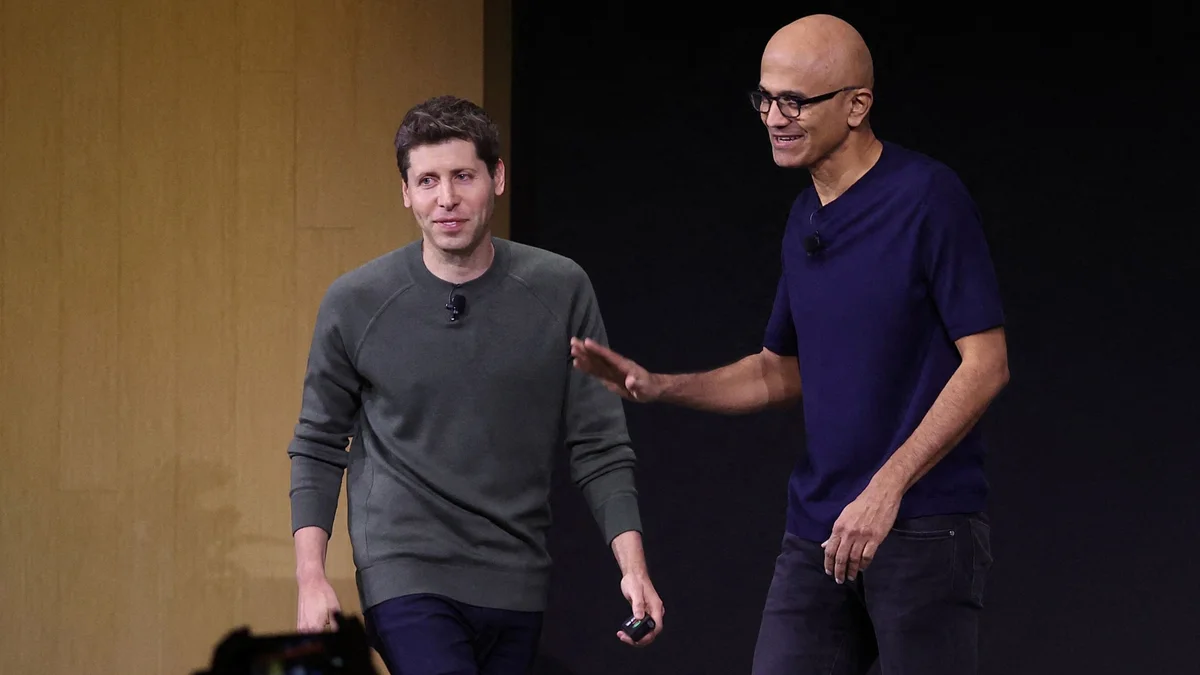Necessary Always Active
Necessary cookies are required to enable the basic features of this site, such as providing secure log-in or adjusting your consent preferences. These cookies do not store any personally identifiable data.
|
||||||
|
||||||
|
||||||
|

OpenAI and Microsoft are currently renegotiating their multibillion-dollar partnership, to redefine their strategic alliance as OpenAI prepares for a potential initial public offering (IPO), according to a report by Business Today. The talks focus on the fact that Microsoft will continue to invest in OpenAI’s for-profit business and ensure further use of their upcoming AI innovations.
Since 2019, OpenAI has attracted over $13 billion in investments from Microsoft, a move that puts Microsoft at the forefront of backers of OpenAI.
OpenAI wants to turn its for-profit corporation into a public benefit corporation, which will give it flexibility to seek funding without compromising its purpose of developing AI for the benefit of humanity. This engagement is part of a broader organizational change that aims to protect OpenAI’s independence and security if a venture into IPO is contemplated in the future.
The company has informed investors that it plans to reduce the share of revenue it distributes to Microsoft under the current arrangement. The change is meant to attract new sources of finance to sustain the financial well-being of OpenAI.
The talks between OpenAI and Microsoft are supposed to resolve ownership stakes, guarantee future access to technology from OpenAI, and chart future cooperation after the 2030 expiration date. Microsoft is said to be willing to reduce its stake in exchange for providing continued access to OpenAI’s advances thereafter the deal expires.
Despite their close collaboration, tensions have emerged between OpenAI and Microsoft. OpenAI’s ambitions have increased competition with its biggest benefactor, as the startup targets enterprise customers with AI products and seeks partners like Japan’s SoftBank and Larry Ellison’s Oracle to build its vast computing infrastructure dubbed “Stargate”.
A senior Microsoft employee commented on the dynamics, stating, “The friction comes partly due to style. OpenAI says to Microsoft ‘Give us money and compute and stay out of the way: be happy to be on the ride with us.’ So naturally, this leads to tensions. To be honest, that is a bad partner attitude, it shows arrogance.”
Nevertheless, both companies remain interdependent. Microsoft has embedded OpenAI’s technology into its software products and provides it with substantial computing power to train AI models. OpenAI’s CEO, Sam Altman, acknowledged the partnership’s importance, saying, “We’re deeply grateful for our partnership with Microsoft; the early big bet they took on us and the vast compute resources they’ve provided have been essential to our research breakthroughs, benefiting both companies greatly.”
OpenAI‘s restructuring plans have attracted scrutiny from regulators and critics. The company has pledged to ensure its business arm remains under the control of a non-profit board by giving the board a substantial equity stake in the public benefit corporation and the power to nominate its directors.
However, some, including co-founder Elon Musk, argue that the shift serves private interests and undermines public benefit goals. Musk has vowed to continue his legal action seeking to stop any corporate restructuring, stating, “The charity is still turning over its assets and technology to private persons for private gain — including Sam Altman — while moving all of the charity’s actual work on AI/AGI into a giant for-profit corporation.”
Additionally, authorities in California and Delaware are reviewing OpenAI’s new plan to ensure it aligns with its mission to serve the public interest. Delaware’s attorney-general, Kathy Jennings, stated she would review OpenAI’s new plan “for compliance with Delaware law by ensuring that it accords with OpenAI’s charitable purpose and that the non-profit entity retains appropriate control over the for-profit entity.”
The results of these discussions and regulatory audit are likely to significantly impact OpenAI’s capacity to raise additional funds, undertake an IPO, and maintain its mission-driven goals in a rapidly changing AI environment.